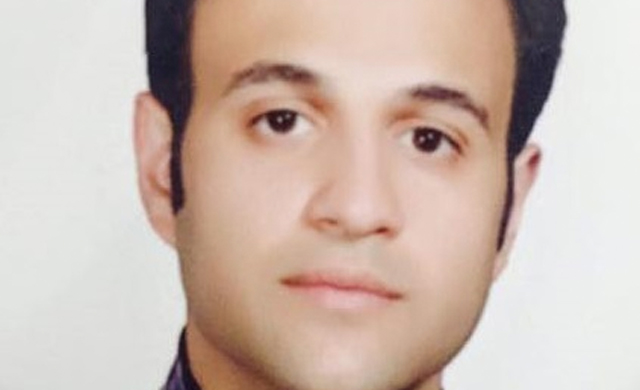Seven Doctors Disagree With Prison Authorities’ Decision to Keep Alireza Golipour Incarcerated
 Medical Staff Refuse to Treat Golipour, Saying He’s Close to Falling Into a Coma
Medical Staff Refuse to Treat Golipour, Saying He’s Close to Falling Into a Coma
Alireza Golipour has been deemed unfit to stay in Evin Prison by seven doctors more than a month into his hunger strike, his lawyer informed the Center for Human Rights in Iran (CHRI) on November 13, 2017.
“Mr. Golipour’s physical condition is extremely critical and he could slip into a coma,” said Azita Gharehbeyglou. “He was transferred to Tajrish Hospital on Friday night [November 10, 2017]. His blood sugar has dropped severely.”
“The medical staff in Evin Prison have refused to treat him because they say he’s close to falling into a coma,” said Gharehbeyglou. “They say it’s too dangerous for him to be in his cell and he needs to be hospitalized. But unfortunately, the authorities won’t agree.”
Arrested by the Intelligence Ministry in September 2012, Golipour, 30, is serving a 12-year prison sentence for the charges of “spying for foreigners,” “sympathizing” with the banned Mojahedin-e Khalgh (MEK) organization, “insulting the supreme leader,” “disturbing public order,” and “acting against national security.”
“He went on hunger strike only because the law is not being applied to him,” Gharehbeyglou told CHRI. “Seven doctors approved by the security establishment have said he’s not fit to be in prison. He has serious heart, lung and liver problems. During the interrogations, his head was smashed and he developed epilepsy.”
“Unfortunately, he was not allowed visits [in the hospital] from his family because the authorities said he’s a security prisoner,” said Gharehbeyglou. “Then, on Saturday, despite his condition, they returned him to prison.”
In an interview with CHRI in May 2016, Gharehbeyglou said her client had admitted passing information to US officials about Iran’s Natanz nuclear power site.
Golipour went on hunger strike on October 12, 2017, in protest against his continued incarceration and the possibility that seven more years could be added to his prison term based on a sentence issued for similar charges by the Revolutionary Court in Yazd in 2010.
She continued: “Prisoners have rights, but those rights are not respected for political and security prisoners. Prison means taking away your freedom. It doesn’t mean you are banned from family visits. You can’t be beaten or humiliated. But unfortunately, this is what has happened, and will continue to happen.
“As a lawyer, I say the law should be carried out to the letter,” said Gharehbeyglou. “We are not asking for anything more or less.”






